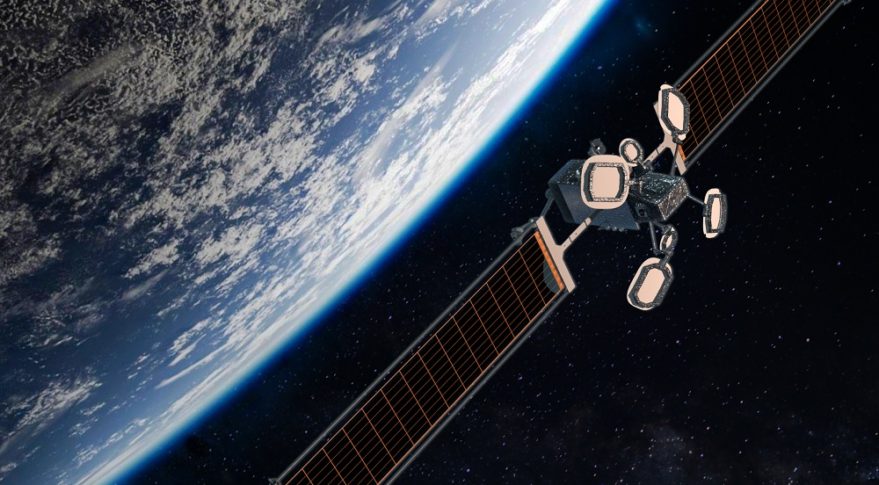TAMPA, Fla. — Ovzon’s first satellite is set to launch between December and February following the delivery of parts caught up in supply chain delays, the Swedish broadband service provider said Aug. 18.
The Ovzon 3 satellite is now able to enter the final stages of integration and assembly with manufacturer Maxar Technologies, which had been waiting on parts that include a reaction wheel from supplier Honeywell.
Arianespace had planned to fly Ovzon 3 earlier in 2022 on an Ariane 5 rocket with Eutelsat’s Konnect VHTS satellite.
However, Eutelsat opted for a dedicated Ariane 5 mission after it emerged Ovzon-3 would not be ready in time. Konnect VHTS is slated to launch Sept. 6.
Arianespace is looking to add Ovzon-3 to one of three remaining Ariane 5 flights before transitioning to the Ariane 6.
Ovzon 3 is lighter and smaller than traditional communications satellites designed for geostationary orbit. Ovzon CEO Per Noré said Ovzon 3’s size makes it easier for Arianespace to work the spacecraft into an existing launch manifest.
“It fits with many different other satellites and it’s not that difficult … to be a co-passenger with,” Noré said, adding “we’re not worried about” it.
Once launched from Arianespace’s launchpad in French Guiana, he said it would take about four months for Ovzon-3 to enter service and expand the company’s available capacity with five steerable beams.
Ovzon leases capacity from Intelsat and other satellite operators to provide broadband mainly for government customers across the Americas, Europe, Asia, and Africa.
Intelsat also has an agreement to use Ovzon 3’s services.
In the third quarter, Intelsat’s $56.2 million pre-capacity commitment for Ovzon-3 was reduced 5% because of the satellite’s delay. Norén said the pre-capacity deal will likely be adjusted down another 10% in the fourth quarter to $47.8 million.
He said Intelsat’s reduced pre-capacity commitment “will not have any impact on future revenues for Ovzon 3” because of rising demand for the company’s services, and its “solid relationship and collaboration” with Intelsat.
Demand for Ovzon’s services has been growing following Russia’s Feb. 24. invasion of Ukraine.
“We have been in active dialogues with European, American, and international civil and defense organizations since the war in Ukraine started,” Norén said.
“There is clearly an increased need for high performing and resilient mobile satellite communications for all types of critical mission.”
Ovzon said revenues jumped 135% to 78 million Swedish Krona ($7.4 million) for the three months to the end of June, compared with the same period last year.
The company reported an operating loss of 8.8 million Swedish Krona, compared with a loss of 31 million Swedish Krona in 2021.

